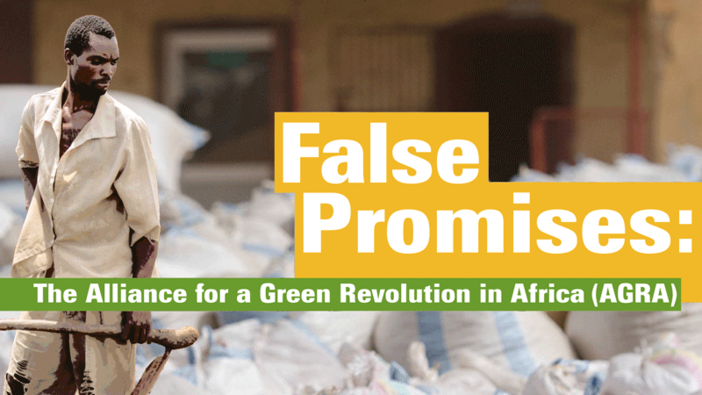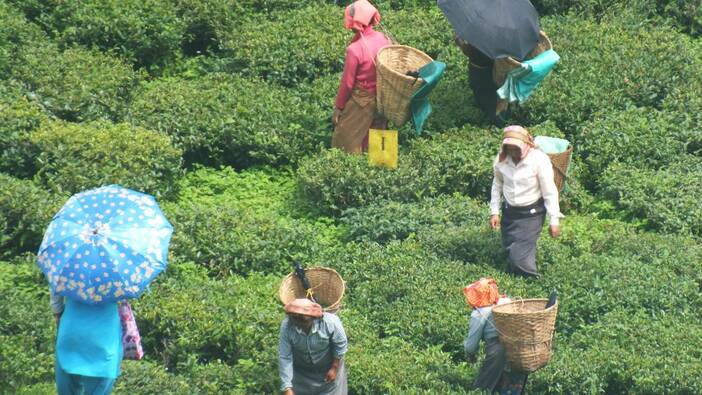![[Translate to en:] Erneut bestätigt: Der Entwicklungsansatz der Allianz für eine Grüne Revolution in Afrika (AGRA) ist gescheitert](/fileadmin/_processed_/f/d/csm_AGRA-Broschure-Cover_5cef6a990a.jpg)
In late 2022, following an over two-year delay, the German Federal Ministry for Economic Cooperation and Development (BMZ) and its implementing development bank, the Credit Institute for Reconstruction (KfW), published a mid-term review of the projects they funded in Burkina Faso and Ghana as part of phase 1 of the Alliance for a Green Revolution in Africa (AGRA) programme. During this first phase (2017–2022), the BMZ/KfW funded four AGRA projects totalling approximately 10 million euro.
The mid-term review of the AGRA projects commissioned by the German government once again confirms the failure of AGRA’s development approach. The evaluation reveals several highly problematic consequences for the two project countries and especially for the farmers involved in the projects.
The 2020 study False Promises and the 2021 study A Sting in the AGRA Tale already showed that AGRA fails to meet its own objectives in the 13 AGRA priority countries, including Burkina Faso and Ghana. The Rosa Luxemburg Foundation, Bread for the World, FIAN Germany, Forum Umwelt und Entwicklung, and the INKOTA-netzwerk have now assessed the mid-term review. They conclude:
- Without the continuous external funding of industrial inputs such as synthetic fertilisers, pesticides, and industrial seeds, the AGRA project model with its Green Revolution development approach cannot exist. This contradicts AGRA’s claim that smallholder agriculture can be transformed into a successful self-sustaining “business”. On the contrary, the model creates dependencies on industrial inputs and restricts farmers’ freedom of choice, especially in terms of seeds.
- The consideration and implementation of key human rights, such as the right to food or the protection of children from economic exploitation, and the BMZ’s human rights concept — which is binding for KfW — are not systematically examined in the AGRA evaluation. AGRA projects are found to use child labour, which is an unacceptable human rights violation.
- AGRA projects in Ghana use pesticides banned in the EU, such as the active ingredients Propanil and Permethrin. This violates the BMZ’s “Reference Framework for Development Partnerships in the Agriculture and Food Sector”, as well as the World Bank’s social and environmental standards. Both standards are mandatory for KfW projects financed by the German government.
- The mid-term review concludes that AGRA interventions have increased yields and incomes and improved food security. However, there is no scientifically acceptable data to support this claim, due to a lack of baseline data collection before the start of the projects as well as surveys using extremely small data samples. Moreover, the review examined only a very short time span, thus not offering sufficient and reliable insights.
The German Federal Minister for Economic Cooperation and Development, Svenja Schulze, announced in spring 2022 that she would re-examine the cooperation between the German government and AGRA. Given the results of its own evaluation, the only logical course of action would be to end all political involvement with AGRA and other initiatives that promote the agricultural model of the Green Revolution. Instead, the BMZ should make the right to food and agroecology the compass of its development policy and underpin all projects with clear milestones and measurable targets.

